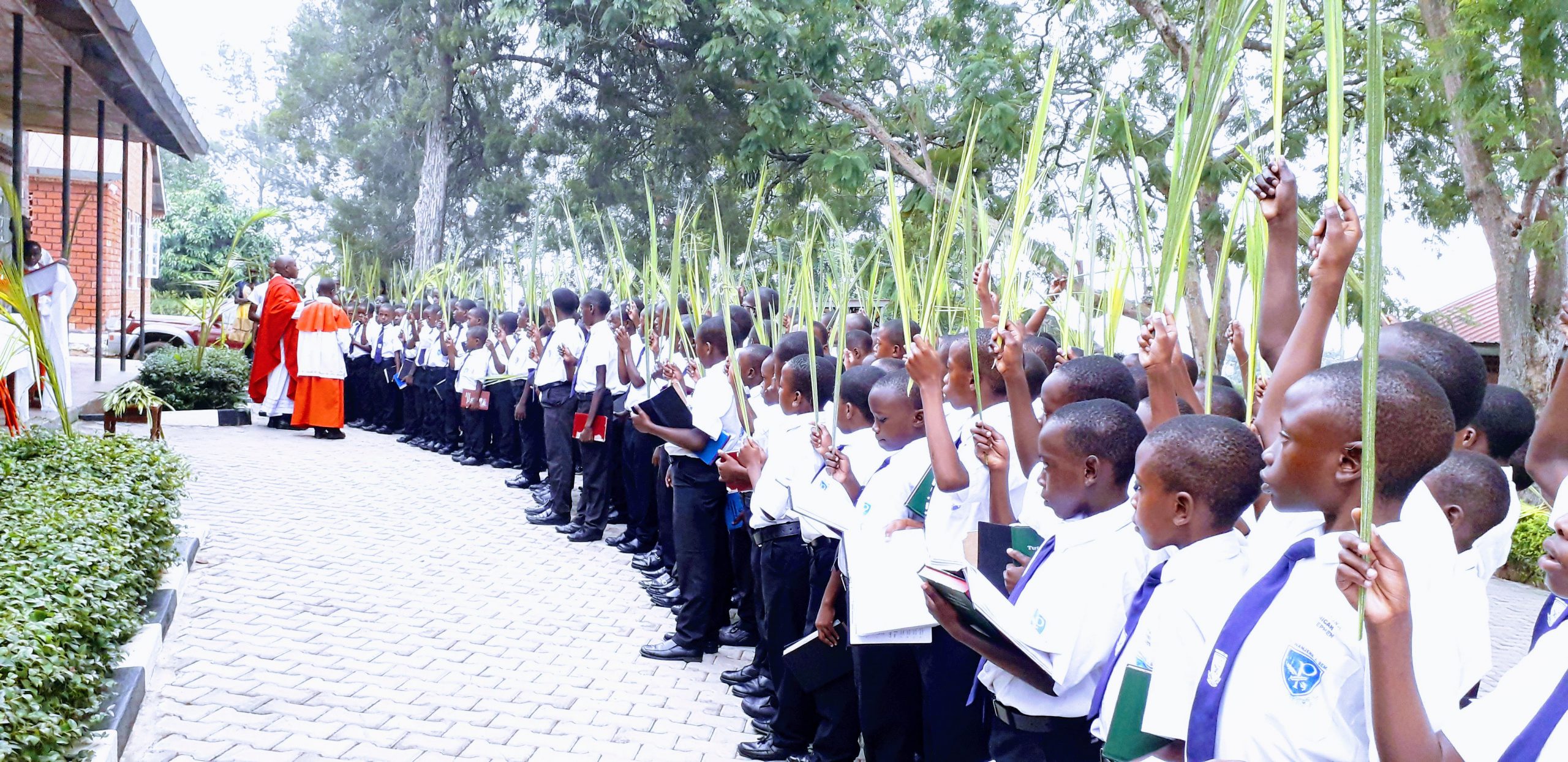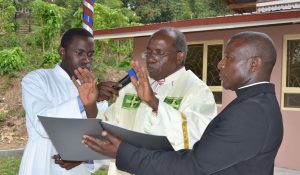
As we are celebrating 50 years of the existence of Nswanjere, one of the questions that we should be asking ourselves is this; Is Junior Seminary education still relevant and important to the Church and to wider society in Uganda? Can we say that Nswanjere is still relevant? Of course, this is not a mere question of saying ‘Yes’ or ‘No’. It is something to which we can only give a proper answer after deeply considering all the underlying factors.
In the history of the Church, Junior Seminaries have occupied an important (albeit peculiar) place. Although the guidelines of the council of Trent about seminary education seemed to discourage the setting up of junior seminaries, many local Churches continued to set them up throughout Christendom. Boys who felt the call to become priests were encouraged to join these so as to be formed at an early age. Junior seminaries continued to thrive throughout the Catholic world until the close of the Second Vatican Council. In the aftermath of the council, Junior and Minor seminaries became less popular, especially in the Western world. Many of them were closed while others were simply transformed into elementary and high schools. We should be careful, though, not to entirely attribute this change in attitude in the west to the Vatican Council. While giving guidelines concerning seminary education, the Council had left it open for each nation or rite to have its own program of Priestly training ‘owing to the wide diversity of peoples and countries’ (OptatamTotius, No.1). We can perhaps surmise that the extinction of Junior and Minor Seminaries in the west was a result of these nations adopting programs of priestly training that were suitable for their own circumstances and culture.
We should, however, be keen and careful while comparing the situation in the west to our own local circumstances. Junior and Minor seminaries here in Uganda have played, and continue to play, a very vital role in the Church and society. I think it is only proper that we all appreciate this. The mistake that some people often make is to think that junior and minor seminaries are sort of ‘priest factories’ where boys are confined and indoctrinated so that they fall in line and somehow get the desire to be priests. This mentality is very wrong! As a matter of fact, in a junior or minor seminary here in Uganda, you will not have staff members beating the boy over the head and saying, ‘You must be a priest! We want you to be a priest!’ Junior and minor seminaries are places where boys are getting ordinary education in line with the national curriculum. The difference between a junior seminary like Nswanjere and other schools out there is only one. The boys are getting a solid and firm Catholic education that is not only academic but also moral. The natural thing about this is that the Junior Seminary is a very conducive environment for the growth and thriving of a priestly vocation. This though is not the exclusive objective of the seminary. As a matter of fact, the world needs morally upright laymen as much as priests. The Junior Seminary aims at forming a boy of solid character no matter what his eventual choice of a state of life will be.
There are people who also argue that these young boys should get a chance to experience life ‘in the ordinary sense’. This is very important, indeed and that is what is taking place at the Junior Seminary. A visit there and interaction with the boys can suffice to convince anyone that these boys are living life in the most ordinary sense. As a matter of fact, not even all of them are keen on becoming priests. Some are thinking of other fields. Some want to be lawyers, doctors, engineers, teachers, and even Prime Ministers! Besides, the seminary follows the normal curriculum similar to other Primary schools and gives the boys so much freedom to experience all the ordinary things experienced elsewhere like dances, movies, sports, outings among others. This is in keeping with the Church’s teaching that, “…let them (Junior and Minor seminarians) lead lives suited to their age, mentality and development of young people. Their way of life should be fully in keeping with the standards of sound psychology and should include the suitable experience of the ordinary affairs of daily life” (OptatamTotius, No.3). The boys in the Junior Seminary are therefore given suitable freedom to freely express themselves, to be happy and to live life to the full.
We should also furthermore, consider the immense role that the Junior Seminary has played in the internal workings of the Church over these 50 years. Some people may argue that vocations to the priesthood can as well be reaped from any good Catholic schools across the country. While this argument is very valid, we should not undervalue the role that the Junior Seminary has played in helping boys become aware of their call to become priests. We are now celebrating 50 years of the existence of Nswanjere and over these years, the seminary has produced close to 300 priests. This means that on average, 5-6 alumni of Nswanjere have been ordained each year. This, to me, is a very excellent performance for a junior seminary.
Attention should also be given to the more than 2,000 bo who have passed through the seminary. All those whom I have come across have very fond memories of their alma mater. They did not become priests but are happy and successful. What they appreciate most is the solid formation that gave them an early thrust into life. The momentum-that determination to live life with integrity-has remained unabated since they set out from Nswanjere. Many of them summarize their stay at Nswanjere in one statement; ‘It was fun!’ Most importantly, though, they point out Nswanjere as the place that made them what they are.
From all this, I can say that the simple answer to the question we are pondering about is ‘Yes’. The Junior Seminary is still and will continue to be, very relevant and important to the Church and society in Uganda. We just need to look at the fruits to see that the tree is still strong, healthy and indispensable. A realization of all this should compel us to water the tree that it may continue to produce myriads of delicious fruits. The watering of our tree (the Junior Seminary) should be done by all Catholics and people of goodwill. Everyone in their various capacities should support the Junior Seminary. Parents, however, are the greatest stakeholders in all this. They should not view the seminary as ‘the place to take their errant and hardened son for rehabilitation’. The Junior Seminary is a seminary, not a rehabilitation centre for delinquents. The Church’s teaching moreover stresses the fact that families should be the first seminaries (Optatam Totius, No.2) and we should not lose sight of this. As we celebrate 50 years of the existence of our Junior Seminary, let us strive to always remember the fact that the Junior Seminary is still relevant and important to us. This is not something that we should just believe theoretically. It is a concrete fact something that calls upon us to act. Let us support our Seminary. Let us do all we can to sustain this gift that God has given u; the Golden Pearl that is Nswanjere.
By Rev. Fr. Henry Mubiru







Wonderful article, extremely well written
wow….thanks be to God,i love this school